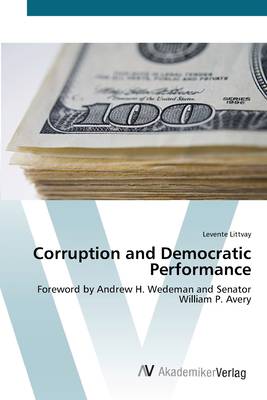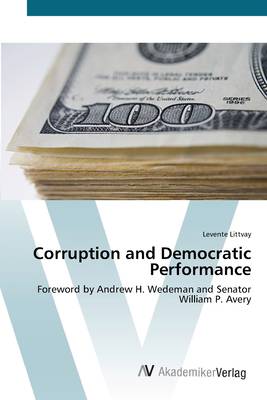
Bedankt voor het vertrouwen het afgelopen jaar! Om jou te bedanken bieden we GRATIS verzending (in België) aan op alles gedurende de hele maand januari.
- Afhalen na 1 uur in een winkel met voorraad
- In januari gratis thuislevering in België
- Ruim aanbod met 7 miljoen producten
Bedankt voor het vertrouwen het afgelopen jaar! Om jou te bedanken bieden we GRATIS verzending (in België) aan op alles gedurende de hele maand januari.
- Afhalen na 1 uur in een winkel met voorraad
- In januari gratis thuislevering in België
- Ruim aanbod met 7 miljoen producten
Zoeken
Corruption and Democratic Performance
Foreword by Andrew H. Wedeman and Senator William P. Avery
Levente Littvay
Paperback | Engels
€ 60,95
+ 121 punten
Omschrijving
Revision with unchanged content. The relationship between corruption and democratic performance has always been a key question for political economists. It is important in terms of understanding the incentives that may improve quality of life in less developed countries. In the past, studies of this relationship have suffered from a lack of analytical sophistication, failed to extract all available information from the data, and assumed causal direction without empirical testing. No previous study has utilized nearly all countries of the world across a large time span. This book goes deeper by overcoming these analytical challenges. The analysis includes data for 186 countries, from 1984 to 2004. The primary finding suggests that IMF and World Bank policies of lowering corruption before structural adjustment is granted are misguided. The book is addressed to advanced scholars of comparative political economy and quantitative analytical techniques, and includes a foreword by Dr. Andrew H. Wedeman and Senator Dr. William P. Avery, providing a broad overview of the topic.
Specificaties
Betrokkenen
- Auteur(s):
- Uitgeverij:
Inhoud
- Aantal bladzijden:
- 156
- Taal:
- Engels
Eigenschappen
- Productcode (EAN):
- 9783639410785
- Verschijningsdatum:
- 15/05/2012
- Uitvoering:
- Paperback
- Formaat:
- Trade paperback (VS)
- Afmetingen:
- 152 mm x 229 mm
- Gewicht:
- 235 g

Alleen bij Standaard Boekhandel
+ 121 punten op je klantenkaart van Standaard Boekhandel
Beoordelingen
We publiceren alleen reviews die voldoen aan de voorwaarden voor reviews. Bekijk onze voorwaarden voor reviews.









